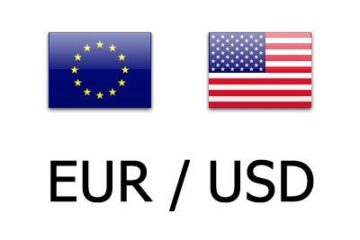“Predicting rain doesn’t count. Building arks does,” Warren Buffett once said.
However, today’s harsh and turbulent economic environment makes it hard not just to make predictions, but also to be prepared for everything that could happen.
Take the Covid pandemic, for example. Was anyone expecting something like this? And even if someone had, what could non-essential businesses have done to prepare?
Related: Quantum computing news sends D-Wave Quantum’s stock price surging
While the pandemic was extraordinary and unexpected, certainly other scenarios can be anticipated — and prepared for. Adapting to the current environment is one of the skills every business leader should have.
In today’s challenging climate of tariff uncertainties, inflation, and rising interest rates, many experts are betting big on the future of technology. That’s because technology is one of a few industries relatively immune to economic turbulence.
Its superpower lies in its versatility. Technology is everywhere. It’s the machines on farms that help produce food, it’s the medical devices that save our lives, it’s the transportation that helps us reach places that would otherwise be inaccessible.
Even people who are in rural areas are becoming increasingly dependent on technology.
While it’s true that we’re often surrounded by more technology than we truly need and that it also brings adverse consequences, it is highly unlikely things will change in the near future.
But even a booming industry doesn’t guarantee success for every company in the space.
Over the last five years, Wolfspeed’s stock has dropped 98.38%.
Images ource: CFOTO/Future Publishing via Getty Images
Next-generation semiconductor company struggles
The semiconductor sector is one of the fastest-growing sub-industries, which saw strong growth in 2024, hitting sales of $627 billion. Experts predict that it is on track to reach $1 trillion in chip sales by 2030.
Companies focused on the generative AI chip market were deemed leaders, according to the Deloitte Center for Technology, Media & Telecommunications, while others faced challenges.
One semiconductor stock that used to be a high-flier will soon be filing for bankruptcy.
Related: Billionaire Stanley Druckenmiller quintuples stake in top semiconductor stock
Wolfspeed (WOLF) went public more than 30 years ago. Over the last five years, its stock has dropped 98.38%. It reached its highest price on November 16, 2021, hitting $141.87. Now, it trades at 83 cents per share.
What sets apart Wolfspeed from other semiconductor companies is its focus on next-generation technology that improves efficiency and sustainability.
Its core focus is on silicon carbide (SiC) semiconductors, which offer significant advantages over traditional silicon — most notably, a breakdown electric field strength up to 10 times higher, allowing for the design of power devices that handle voltages ranging from 600 to several thousand volts.
More on technology:
T-Mobile fights to keep a misleading advertising claimElon Musk’s SpaceX plans raise major red flags for regulatorsBillionaire Bill Ackman buys $2.8 billion of surging tech stock
On May 8, reports surfaced that the company is considering bankruptcy after not being able to reach an agreement regarding a bond restructuring. A few days later, its junior creditor offered $600 million in rescue financing to refinance a large convertible bond coming due in 2026.
Wolfspeed’s senior lender holds authority over the company’s capacity to take on additional secured debt, raising concerns among convertible bondholders such as Balyasny and Shaolin Capital about the risk of an early bankruptcy. In such a scenario, Apollo Global Management and its allies could take the lead in restructuring efforts, potentially sidelining junior creditors.
Wolfspeed to file for bankruptcy in a few weeks
The Wall Street Journal exclusively reported on May 20 that Wolfspeed is preparing to file for “prepackaged” bankruptcy within weeks, citing sources familiar with the matter.
Following the news, shares dropped 68.53% on Wednesday, trading at $0.99 as of 11:48 a.m. ET.
A prepackaged bankruptcy involves a company negotiating a restructuring plan with its creditors before formally filing for Chapter 11. This approach, which requires shareholder approval prior to the bankruptcy petition, is designed to reduce costs and accelerate the company’s exit from bankruptcy proceedings.
Betting on its U.S.-based manufacturing advantage over Chinese competitors, Wolfspeed made significant production investments, expecting electric vehicle demand to drive annual revenues past $800 million.
Related: Apple users will hate the latest news from Capitol Hill
But EV sales fell short of projections.
In the third quarter of fiscal 2025, Wolfspeed reported $185 million in revenue — down from $201 million during the same period in 2024 — and a net loss of $1.86 million, compared to a $1.18 million loss a year earlier.


